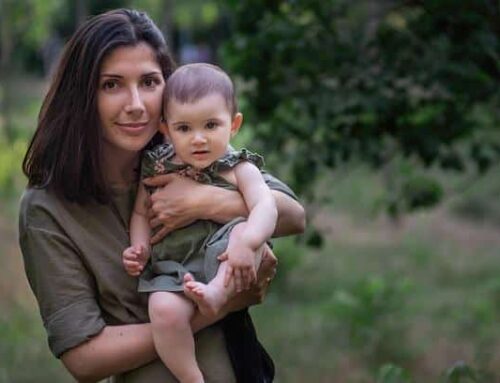Case Study in Family Law: How I helped one family respond to a CPS investigation
I’ll call them Rob and Jenn to respect their privacy.
They owned a successful small business and were the parents of two children, Jason 15 and Emily 13.
A Crisis Already Existed
Mom and dad had already been in crisis mode as Emily was going through a mental health crisis and had overdosed on prescription medications.
While her life was never in danger, Rob and Jenn as responsible parents enrolled Emily in a day-treatment program at a reputable mental health facility in the area.
In her daily therapy sessions, Emily expressed that she felt bullied and unsafe around her older brother Jason.
How CPS Is Involved
Emily’s counselor is a “mandatory reporter” under Texas law and required to report all suspected incidents of child abuse or face professional sanctions or even criminal prosecution.
Needless to say, CPS received a referral through their state-wide intake number.
When CPS receives such a call, certain protocols kick-in and the case is assigned to an investigative worker who must begin an investigation within a matter of only a few days.
All such investigations must be conducted according to well-defined guidelines including making contact with the family, inspecting the home, interviewing the children and talking to collateral witnesses such as friends, teachers, and pediatricians.
The Terrifying Call
Jenn was at the grocery store when she got the call: a CPS worker identified himself, made some vague statement about the abuse allegations, and asked Jenn when he could come to the family home.
Jenn’s heart raced; she left her half-full grocery cart in the isle and raced to her car.
Breathless and crying, she called Rob to share the news.
So Many Questions - So Little Time
At home, Rob and Jenn huddled in their bedroom while Jenn regained her composure.
“He’s expecting us to call him back,” Jenn said. “Should we ask the kids what this is all about?”
Robb wondered and frankly both were too terrified to utter the one question that hung in the air: are they going to take our kids?
We Are So Thankful We Found You
When you have helped hundreds of families respond to CPS investigations, word gets around.
Rob and Jenn did their research, reading past client reviews and recommendations.
Time after time, my name came up in their search and they called me.
How I Handle Calls About CPS Issues
I treat every CPS call as an emergency and make it quick and easy for clients to immediately talk to me.
There is no answering service, no talking to a secretary, no stuffy scheduling process - just me on the phone.
Using our instant messaging widget on the website, Jenn texted me and I immediately replied.
It was Saturday.
Desperate and frantic, Jenn’s words on the phone were like a tsunami.
“Thank you so much for taking our call,” she said, “we don’t know what to do and we have to call him back today.”
Step One - Putting The CPS Call Into Perspective
Rob and Jenn laid out the facts for me, after which it was time for me to ease their fears by explaining CPS, what they can and cannot do during an investigation.
In this particular case, I assessed risk of the children being removed from the home as low as there were no emergency issues such as ongoing family violence, drug abuse, chronic neglect, or excessive alcohol abuse.
Jenn shared she had a conversation the other day with the mother of Emily’s best friend who reported that Emily had talked about Jason being “mean” to her and the two getting on each other’s nerves.
This seemed to match-up with the narrative the CPS worker had discussed with Jenn during his initial call which made me suspect that the counselor was just following protocol to protect his own license!
Here is what I said to Jenn and Rob: “The last thing the State of Texas wants to do is raise your two teen-age children. Call the CPS investigator back, listen more than you speak, and see what he needs to complete his investigation.”
Step Two - Getting On Message and Staying On Message
Jenn called the CPS investigator and the home-visit was scheduled for Monday afternoon; knowing the home visit was coming up, I wanted to make sure Rob and Jenn were ready.
We talked for at least an hour about their family, the kids, and Emily in particular.
They knew she was going through a difficult time and had been very proactive in getting her the help she needed.
We talked about getting on message and staying on message during the CPS meeting.
But what is the message?
It is this - you are protective parents and although you can say it a million different ways, I wanted Rob and Jenn to not just tell CPS they are protective but to give specific examples of protective parenting.
I asked them to explain the relationship between Emily and her brother and consider whether they had been sensitive to any concerns Emily may have raised.
While Rob and Jenn felt they had a handle on things and that the kids engaged in normal sibling conflicts, they agreed to revisit things with both kids in light of the CPS investigation.
Given the age of the children, I felt confident recommending to Rob and Jenn that they discuss things with the kids to alleviate their concerns.
I rarely visit with children in these investigations and caution parents against coaching a child’s statements to CPS ; however, if a child is in her teens and sufficiently mature, some discussion is appropriate.
Finally after hours of working with Rob and Jenn, I was confident they would impress the CPS investigator and simply told them to relax, be cordial, demonstrate insight and concern.
Step Three - To Lawyer Or Not To Lawyer
“Do we need to tell CPS we have a lawyer?” Rob asked; “Do you need to be there with us when the CPS investigator comes to our home?”
This is always a case-by-case decision, but I answered “no” to both of Robb’s questions.
Here is why.
I’ve helped clients respond to CPS investigations for almost 30 years and in that time, I’ve developed some pretty good instincts and know how to help a family make the best response to an investigation.
Showing up at Rob and Jenn’s on the day of the investigation would only intensify the investigator’s concern and curiosity; it could even give the impression that they have something to hide.
I may have talked myself out of a job, but it was the thing to do for this family.
I texted back and forth with Jenn all day Monday and during the investigator’s home visit later that day.
The visit went well: the children were comfortable and expressed no concerns and the investigation was closed as “ruled-out” later that week.
The light touch was the right touch.
Schreier & Housewirth Family Law
1800 West Bowie Street, Suite 200-E
Fort Worth TX 76110
817-923-9999
Gregory L. Housewirth is a Board-Certified Family Law Specialist practicing in Fort Worth Texas. With 30 years of family law experience, Mr. Housewirth has represented hundreds of clients in divorce, custody, CPS, modification, and grandparent cases. In addition, Mr. Housewirth is a qualified family law mediator and a member of Collaborative Law Texas, a practice group dedicated to promoting collaborative divorce in Texas.






